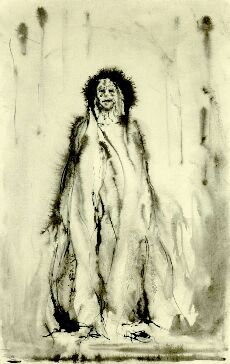|
The book describes a woman coming to Hungary from Transylvania
who is told by most of her new acquaintances that she has a heavy
atmosphere about her. At first she thinks her friends are
superficial hedonists, but then she realizes that this heavy
atmosphere does exist, and that it s the past entangling her,
like weeds. Gradually, half unconsciously, half deliberately, she
opens the trunks of the past.
She realizes that being Hungarian with Gypsy ancestry wasn t
so rosy for her parents. So she spiritually goes back to her
roots. Tries to find out more things about Gypsy culture, about
being Hungarian in Romania. Even more she tries to find a way of
educating her son so that he shouldn t be ashamed of his
heritage.
People expect her to be inquisitive because she s a
journalist, so she meets people in similar situations to hers and
asks them about everything that might give her a clue to what
happened to her at home in Romania during the 60s, 70s and 80s,
that had made her so frustrated.
She even starts to work with Gypsy organizations, but she
doesn't have any sense of being useful, on the contrary the male
chauvinism she encounters makes her feel even more frustrated and
confused. She realizes she doesn t belong to the Gypsy community
either, that her status is that of an absolute outsider.
She travels to the United States, the dream of her
adolescence, and asks and asks, and comes back home and asks and
asks, and in the end she puts together what people have told her
with the memories of her own past that they have triggered in her
in a book, as an invitation to other people to join in a march
for self-respect. And even more a warning that intolerance can
bring a Sarajevo to every place.
This book is not a journalistic book. She doesn t go around
asking always the same questions, as though taking a poll.
Her conclusions are emotional. The book is composed of
vignettes of life with its horrors like madness, aggression, from
rape to psychologically induced self-hatred. Life with its humor,
tenderness and grace of childhood. Life with hopeful dreams
turned into nightmares, or the absurd nightmare of reality turned
into a book, which is for her a dream fulfilled. |


![]() Get your own Free Home Page
Get your own Free Home Page